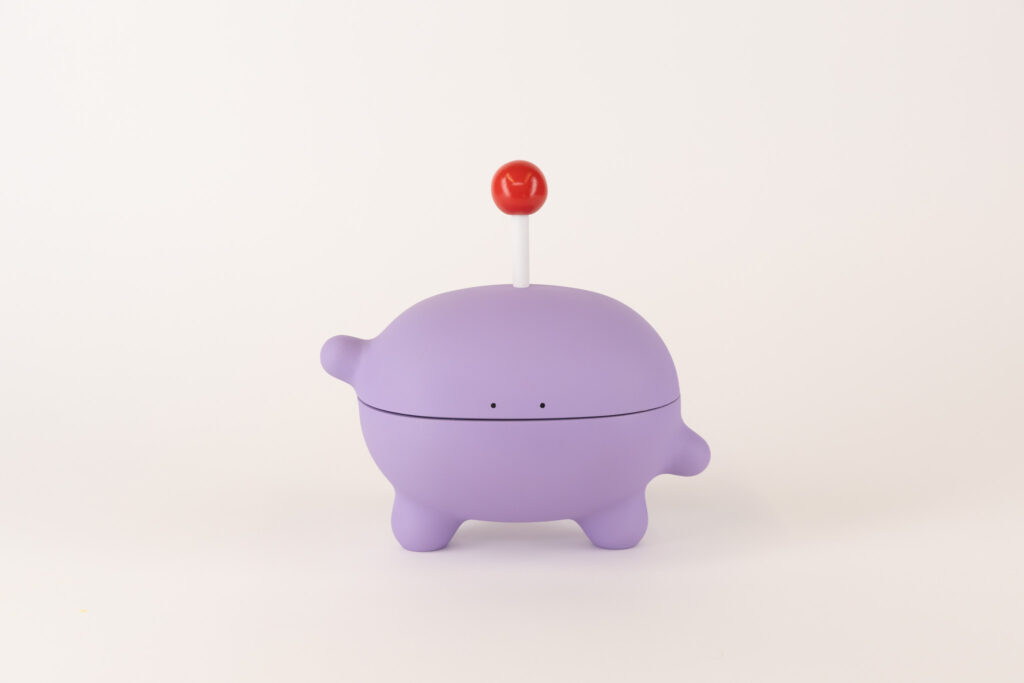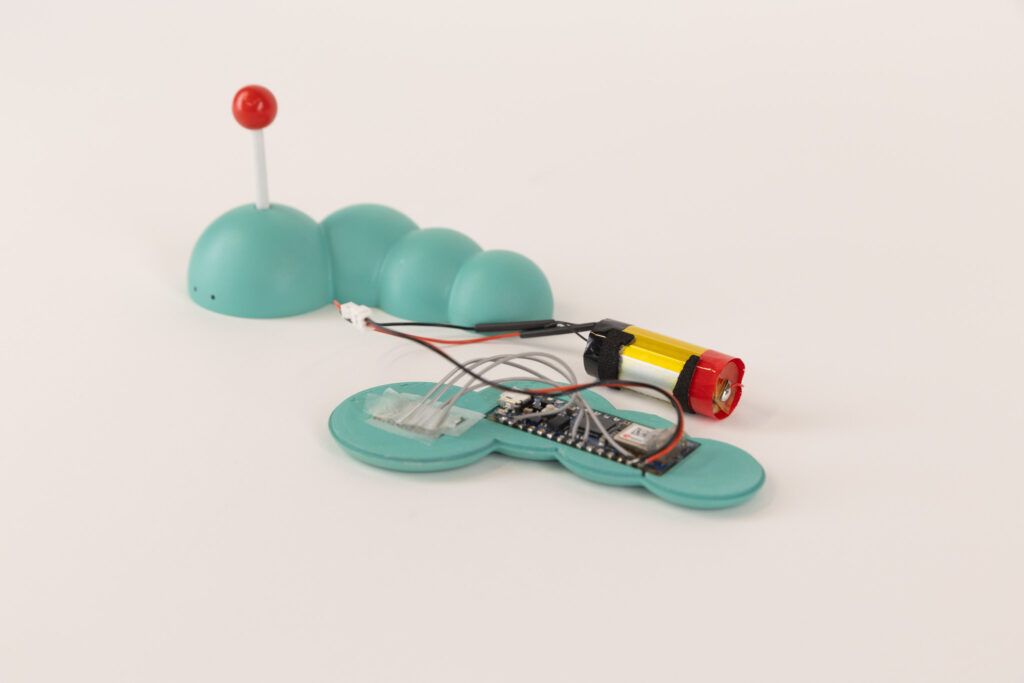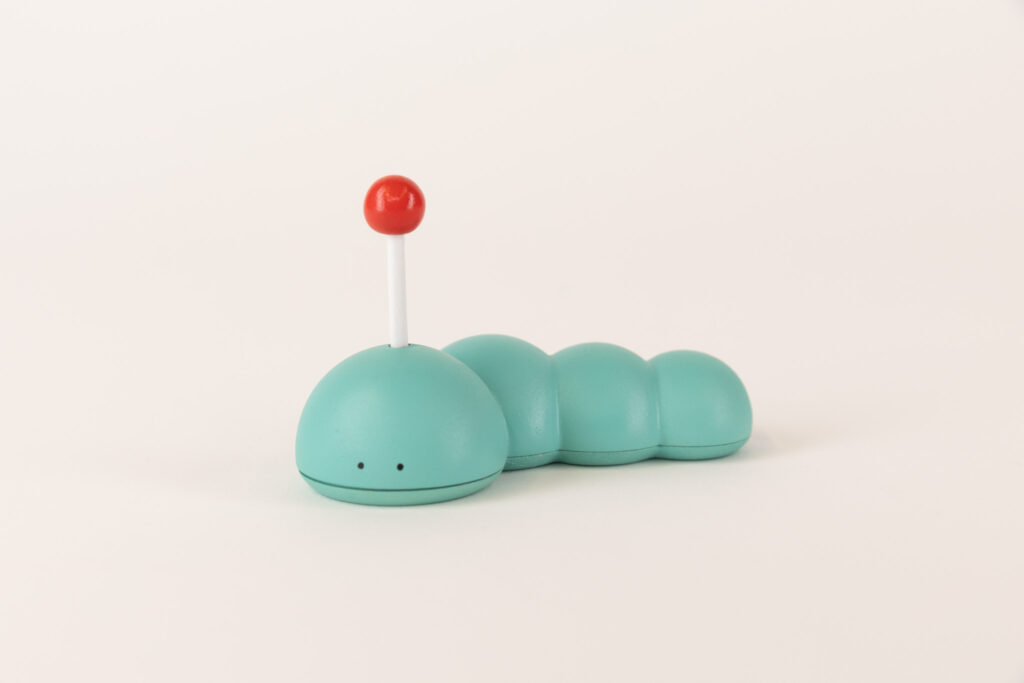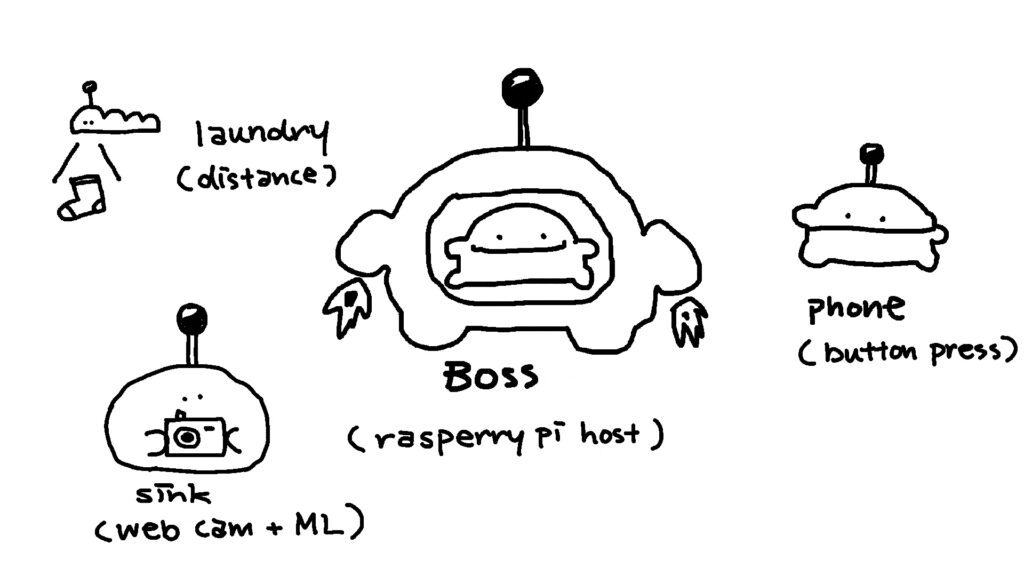smol home
Cindy Wang
Advisor: Kari Love
Smol home is a digital pet that motivates you to do chores!

Abstract
Beepo is a smol friend that lives in my apartment with very specific care needs. He is a virtual pet that I take care of by taking care of myself. This includes tasks such as doing laundry, washing dishes, etc. Through the use of machine learning and sensors, performing these tasks allows me to attend to Beepo’s care needs as well as my own.
The sensors are constantly monitoring areas of my apartment that are the most likely to accumulate trash/clutter. One of the biggest challenges of keeping my room tidy is the lack of motivation and the fear of facing my own incompetence. But Beepo knows exactly how to make me do those chores: by crying and looking super upset. I then perform the task out of sympathy. As my room becomes tidy again, Beepo is no longer upset. I’m happy that he is happy and healthy. I’m also happy that my room is tidy, and I have more mental clarity and less self-hatred.

Technical Details
- wifi IOT using MQTT communication protocol
- hosted on Raspberrypi Zero using Node-RED
- microcontroller(esp32 cam) running ML models that does object detection to determine whether the sink is empty or not.
- Microcontroller (esp32) that has two buttons connected, and if the phone is present, the buttons are being pressed
- microcontroller (Arduino nano) and a distance sensor. it detects how full the laundry basket is
- 3d modeled and 3d printed enclosures
- frame-by-frame animation
- p5 sketch that displays the animation and handles the MQTT messages
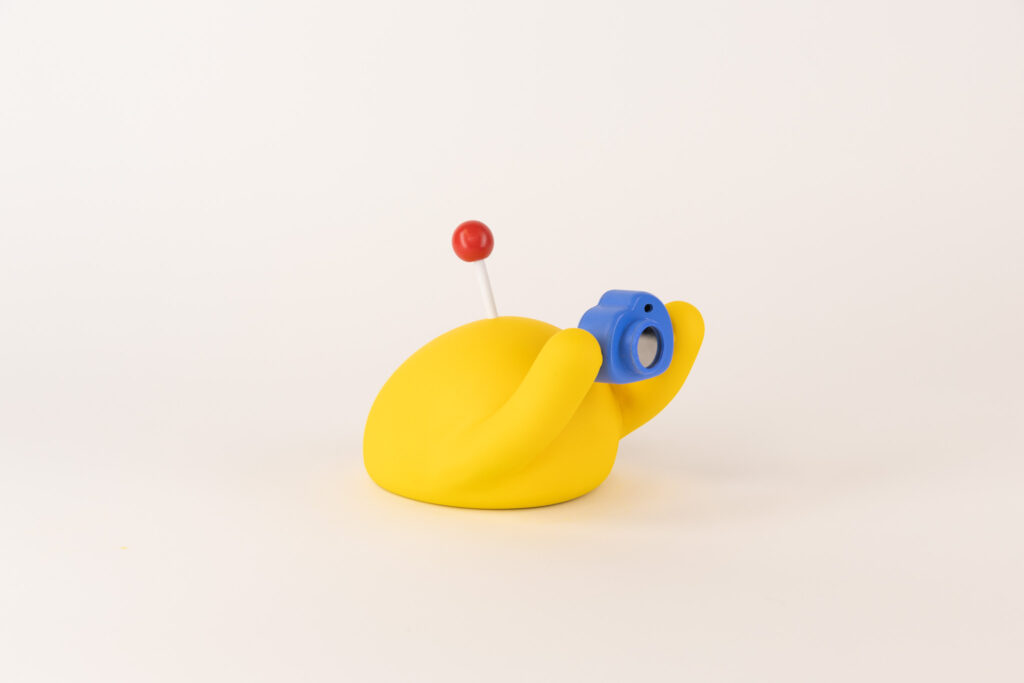
Research/Context
Tamagotchi: the OG of digital pets. They require a lot of care and attention. What do you get in return? Companionship? Not quite, but they look cute.
Baymax: Baymax is a soft cuddly robot that takes care of your boo-boos. It also is a companion robot that makes you feel safe. The feeling that someone is looking out for you is very comforting and reassuring. Therefore if I’m making some robots IRL, I’d also want it to be rounded, soft, and huggable.
Eliza?: Eliza is a chatbot therapist. I’ve read about people establishing emotional bonds with Eliza and prefer to communicate about their feelings with Eliza instead of an actual human. Although the interaction is largely one-sided, because Eliza isn’t capable of showing empathy or giving emotional feedback, the communication is still valid and effective.
Cuteness: This study shows that cuteness helps with focus. Maybe cuteness makes you care about something more. According to this article, looking at cute things activates the reward area of the brain, the same area that gets triggered when you do things you enjoy, which makes you anticipate such rewarding experiences.
Creating bonds: According to Authenticity in the Age of Digital Companions, the act of caregiving creates connection and bonds, and when we do this to a non-creature, we project feelings such as care and love to the thing that we take care of. I want to explore the act of caregiving, and the potential of using it to promote personal growth.
Motivation:
Adulting can be challenging, often requiring reminders and motivation. I struggle with chores because there's no one to prompt me, and completing them doesn't yield any praise or signs of appreciation. Sometimes, we are terrible at taking care of ourselves. I need something that shows appreciation when I complete even basic tasks, like doing laundry.
Without stakes or immediate consequences for not doing something, we tend to procrastinate. For me, this includes tasks like doing laundry, washing dishes and returning them to the cabinet, and keeping my desk tidy so I can easily find things. Of course we can have someone else supervise us, but that could be truly embarrassing. The last thing I want is to be judged for my adulting skills, so perhaps having a non-human supervisor would be less embarrassing. They wouldn't judge, so what's the worst that could happen? They become extremely upset and DIE!
The clutter around my apartment constantly reminds me how I’m failing to meet the expectations of a responsible grown-up. When there’s too much going on at school, doing the dishes or remembering to take my meds get shoved to the bottom of my list of priorities, which over time, they can become completely out of control. I sometimes wish that the pile of dirty laundry would bite, just so I have a reason to stop ignoring them. By reflecting on the fact that I am terrible at taking care of myself, I started
Then I remembered as a child, I was so good at caring for my Tamagotchi, making sure it was fed several times a day, checking if it had pooped, and turning off the lights when it was bedtime. The Tamagotchi was successful in evoking a sense of guilt, empathy, and fulfillment: neglecting it led to it looking sad, getting sick, or even dying. This created a sense of urgency and responsibility. My attentiveness then was rewarded with perfectly healthy tamagotchi who then transforms to the rarest species, making me the proudest Tama parent. I cared because it was cute and invested time and energy into it, not wanting to disappoint such an adorable creature. What if it wasn’t cute, lacked little dot eyes, or didn’t have a round and blobby body? My level of care might have been different. Eventually, taking care of my tamagotchi became a part of my daily routine; the sequence of reminder, action, and reward (or punishment) led to the forming of such a habit. On top of that, by putting so much love and care into it, I felt a bond similar to that with a pet, which I wanted to protect at all costs. I wonder if I apply the same passion of caring for my tamagotchi to caring for myself, how would that change how I navigate my daily life?
I’m imagining a little creature that will get upset over things. Their frustration is not directed towards you, but instead the box of milk that has been sitting in your fridge since forever ago, and the bottle of medication that gets emptier too slowly. They don’t judge, they simply react, so there’s nothing personal about their distress. They don’t inflict more stress. Like a tamagotchi, the stakes for mistakes are low, but not none. You have a reason to do something, but aren’t pressured. Most importantly, they are adorable, and making them suffer is the last thing you want to do.My hope is, by taking care of these creatures, you would become more willing to perform the tasks because you care about them. form a habit that will benefit you in the long run.
